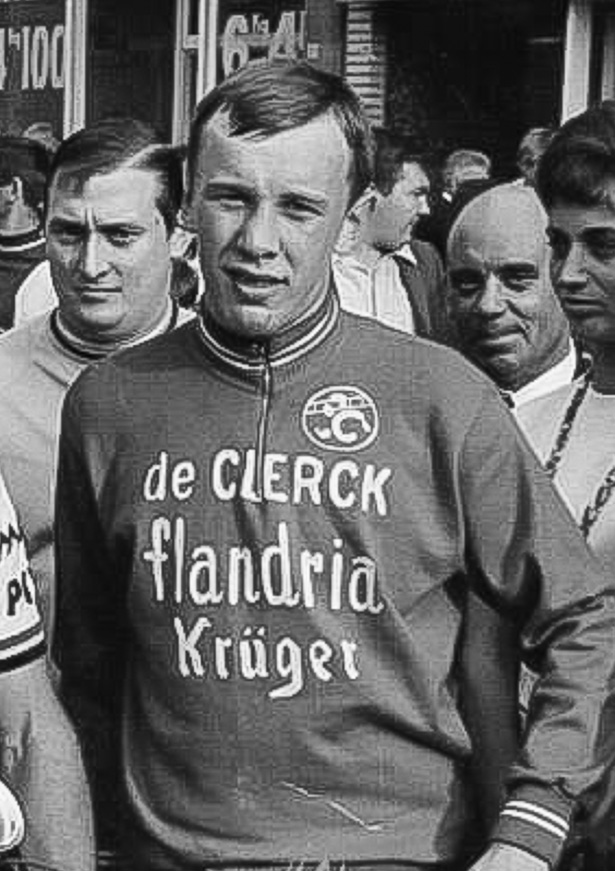
The word ‘legend’ is over used these days; but today we bring you an interview with a man who firmly deserves the title – Mr. Rik Van Linden of Belgium.
Nicknamed ‘Rik 111’ – following on from Belgian superstar riders Rik’s Van Steenbergen [1] and Van Looy [11] he was the son of a professional rider.
Van Linden was an almost unbelievably prolific winner as a youngster and won the full classic Paris-Tours whilst still riding as a stagiaire.
He won multiple stages in all of the Grand Tours and was green jersey winner in the 1975 Tour not to mention winning numerous semi-classics such as Milano-Torino.
All told he won 110 professional races, but it must be remembered that these victories were achieved during one of the sport’s golden eras against men like Merckx, De Vlaeminck, Planckaert, Basso and Bitossi.
An accomplished track rider he was Belgian omnium and Derny champion and could get round a Six Day track, winning in Milan with Felice Gimondi in 1977.
He was even capable of winning stage races – witnessed by his GC win in the 1974 Giro di Sardegna.
During a career which lasted from 1971 to 1983 he rode for Hertekamp-Magniflex, Van Cauter-Magniflex-de Gribaldy, Rokado, IJsboerke-Colner, Bianchi-Campagnolo, Bianchi-Faema, DAF Trucks-Lejeune, Boule d’Or, Hoonved-Bottecchia and finally Batavus-Jos Meesters.
He recently took time to speak to VeloVeritas about his career as one of the 70’s fastest men.
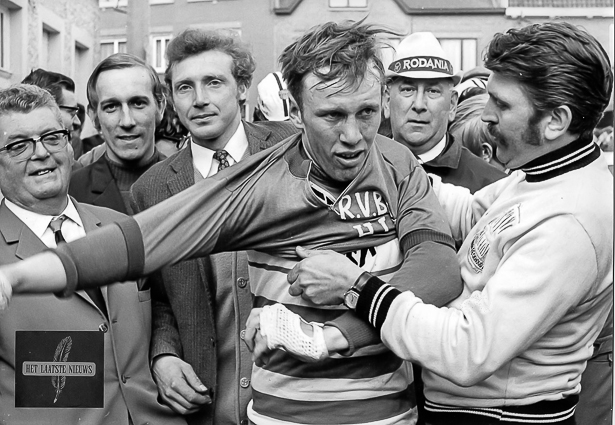
I believe your father was a professional in the 30’s and 40’s – did that influence you to become a professional ride?
“I was born into the world of professional cycling; it was my father’s dream that I would become a professional cyclist too.”
You were a prolific winner as a pro, amateur and junior – how many races did you win in each category?
“My victories are:
neo cadets: 59
Cadets: 50
Juniors: 182 (where I am still the world record holder with 74 victories in one season)
Amateurs: 71
Professional: 110″
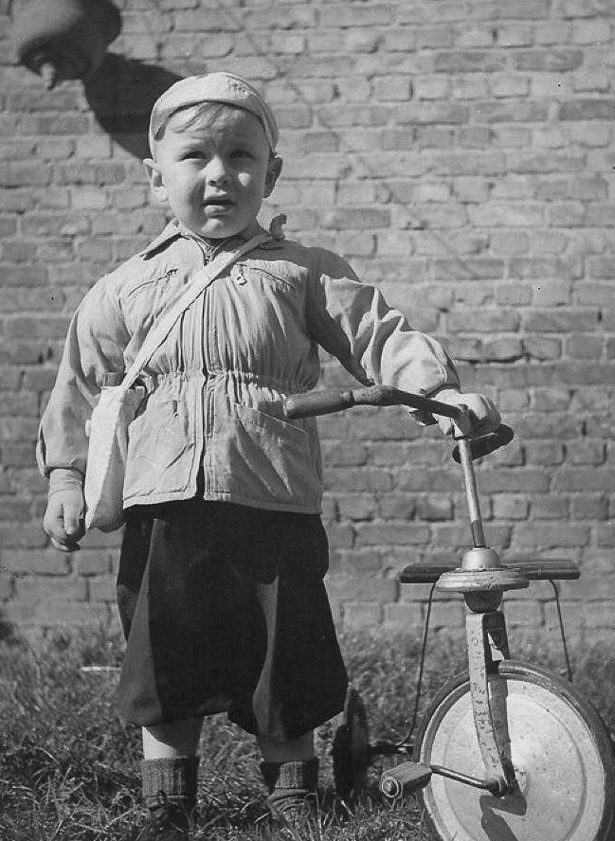
You won Paris-Tours as a first year pro – that must have caused a sensation?
“I was only two months professional when I won Paris Tours – I was still a stagiaire.
“That’s the race where I first got my nickname of ‘Rik 111’ – after Van Steenbergen and Van Looy.”
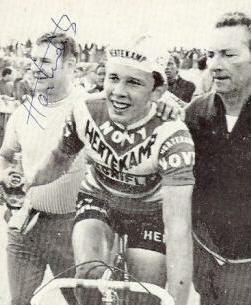
But you never managed to win Gent-Wevelgem, a race which suited you?
“I once was beaten by Freddy Maertens by a millimetre in the sprint but it was my own fault that I lost Gent Wevelgem that day because I waited too long to start my sprint.
“I was second and third in the race – which was a disappointment for me, yes.”
What was your most successful season – how many wins?
“My most successful season was 1973 with 21 victories [including three Giro di Sardegna stages, four Ruta del Sol stages, three Paris-Nice stages, two Giro stages and Paris-Tours].”
Which win in your career are you most proud of?
“The greatest moment in my career was to win the Tour de France green jersey in Paris when my father was there – he had tears in his eyes when he saw me on the podium.
“My wife Yvette was there with him, a great memory for me.”
Who was your fastest rival sprinter?
“My fastest competition was from my countryman Patrick Sercu.”
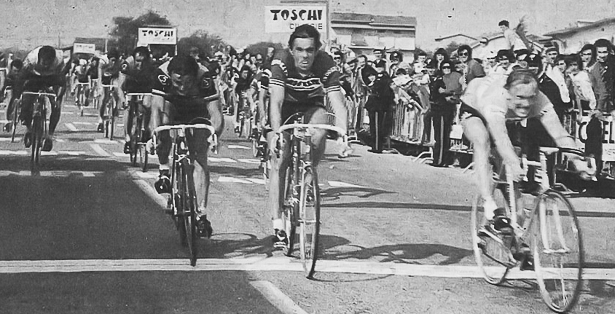
Who was most dangerous – in terms of most liable to knock you off?
“The Italian Marino Basso, who was World Champion in 1972, was one of the sprinters who you didn’t move easily out of the way in the sprint.
“He wasn’t frightened of much!”
What was the worst crash you had?
“My worst crash was in 1978 Giro; in Mugello with Freddy Maertens…”
What gear did you sprint in – and what do you think of the current 53 x 11?
“I sprinted with 53 x 13; times have changed for the sprint finishes – we didn’t have teams to pull for the sprint like they do now.”
Do you look at the bikes the pros ride now and feel a little envious?
“No, the bikes now are much lighter which I think causes more crashes due to the flex in the carbon frames and wheels.”
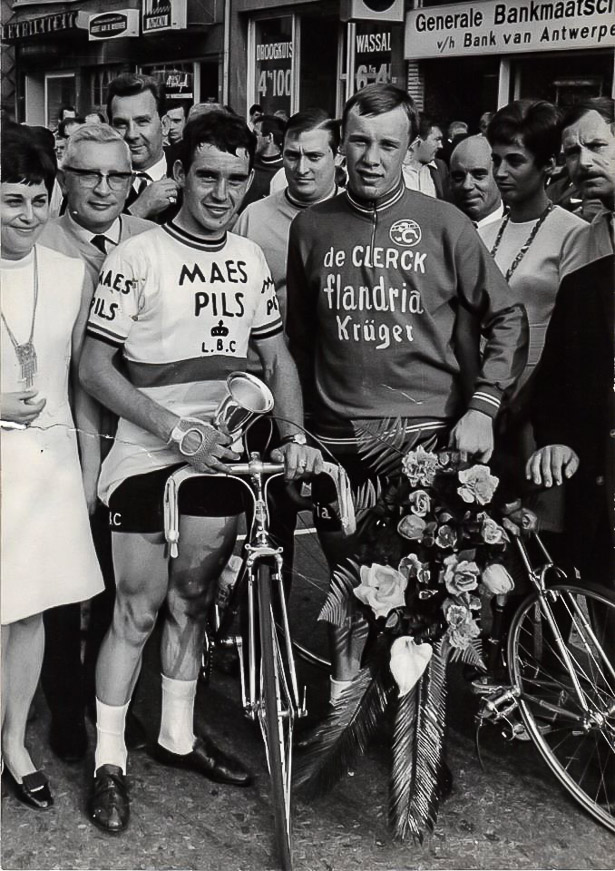
Did you have a sprint ‘train’ working for you?
“I didn’t need a sprint train; I preferred searching out my own place in the sprint – otherwise you’re dependent upon someone.”
Perhaps your best years were with an Italian team – Bianchi, unusual for a Belgian.
“For me it was an honour to ride in an Italian squadra.
“They were very professional – Feretti the team manager taught us about the importance of discipline which made us maybe 20% stronger.”
Was the green jersey in the Tour as important, back then?
“The green Jersey was very important back then – maybe even more important than now.
“In 1975 Eddy Merckx was second but he really wanted to win that points jersey.”
Are you glad you were a pro when you were – or do you think now is a better time to race?
“Financially now the times are better to be a professional cyclist – but I can always say I beat Eddy Merckx!”
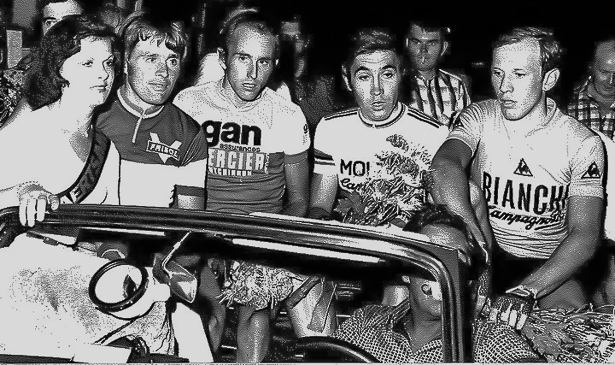
The Armstrong mess – what do you think of it?
“I don’t want to spend any more words on Armstrong; they’ve all been said already.”
The UCI – was it the same back in your day, with all the arguing over power?
“The UCI didn’t operate in the same manner back then, which I think made racing easier because the rider chose where he rode and when he rode.”
What do you do these days?
“I have a Bike shop in Antwerp and I’m the mentor of the professional cyclist Kristof Goddaert who’s with the IAM cycling team.”
Any regrets about you career
“One regret which I do have is that I wasn’t selected for the Belgian team for the World Road Race Championships in Gap, France in 1972 – I think I really had the chance to be world champion on that day!”
[vsw id=”kurSEoh-L3A” source=”youtube” width=”615″ height=”450″ autoplay=”no”]
“Faster than his own shadow”.
With thanks to Rik and his son Jeffrey for their cooperation and patience.
Have a look at Rik’s extensive palmarès.



